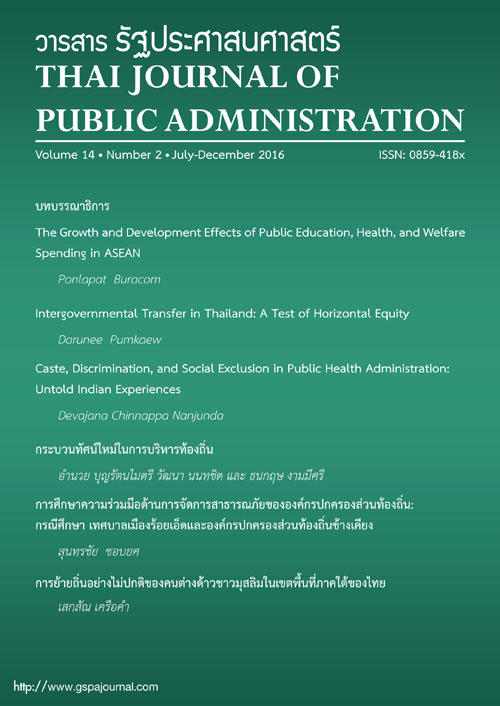Caste, Discrimination, and Social Exclusion in Public Health Administration: Untold Indian Experiences
Keywords:
Health, caste, discrimination, social exclusion, povertyAbstract
Caste, poverty and social exclusion are closely interrelated to health in any prismatic society. Caste and social exclusion have a multidimensional consequence on the social determinants of health and bear an elevated threat of various diseases among the margins. Also this issue has a likelihood of being excluded from the quality health care services. The issue of social exclusion and public health has received wide attention in India in the era of globalization. It is argued that poverty leads to poor health, and poor health is also one of the major factors for social exclusion and poverty. In a prismatic society like India, the caste plays a predominant role in causing social exclusion and thereby various types of health inequalities. Some socially excluded groups are living in extremely poor conditions in rural parts even today. In India SC (Scheduled Castes), ST (Scheduled Tribes), OBC (Other Backward Castes), and minority (Muslims, Christians, etc.) groups are considered as socially excluded groups and have been deprived of good health status for various reasons. This current study has been conducted in South Karnataka-India on selected socially excluded groups to obtain their opinion and experiences through the use of a questionnaire.
The conclusion is that caste and social exclusion are vital factors accounting for the fact that certain sectors of society even today cannot access quality public health care services in India.



